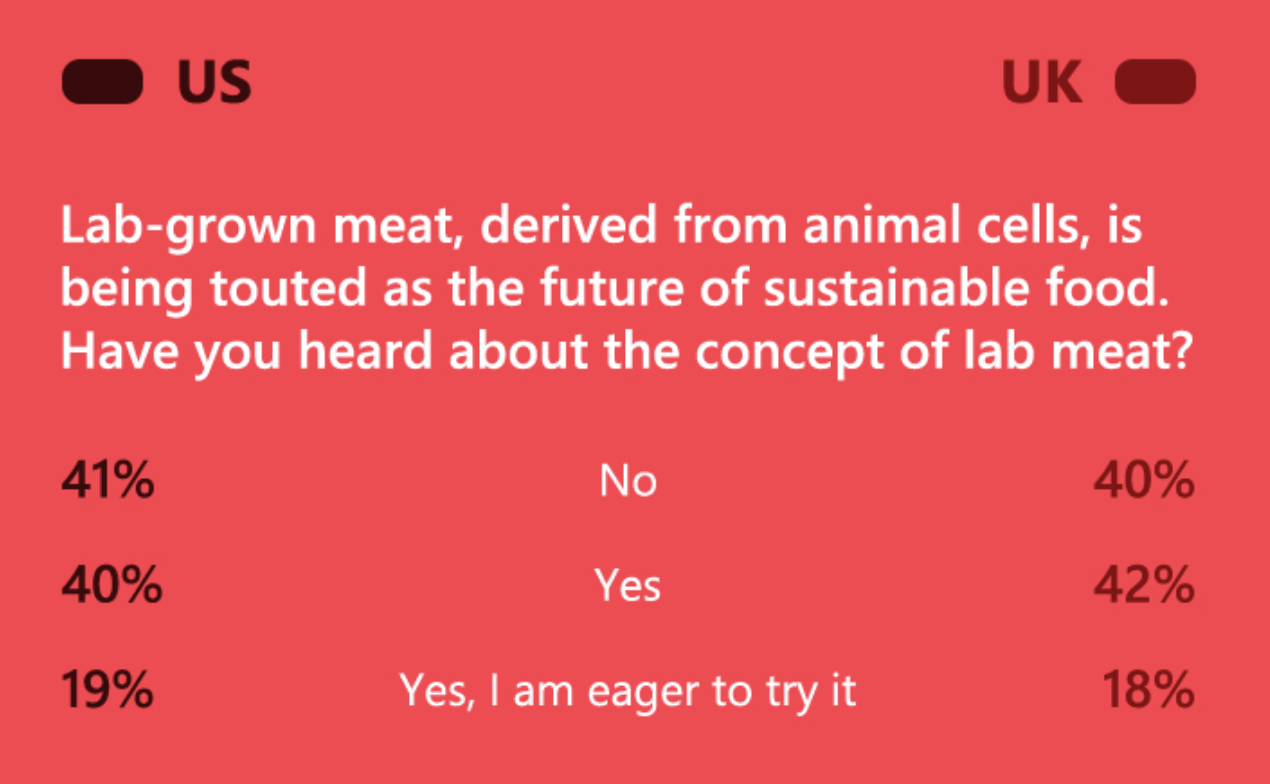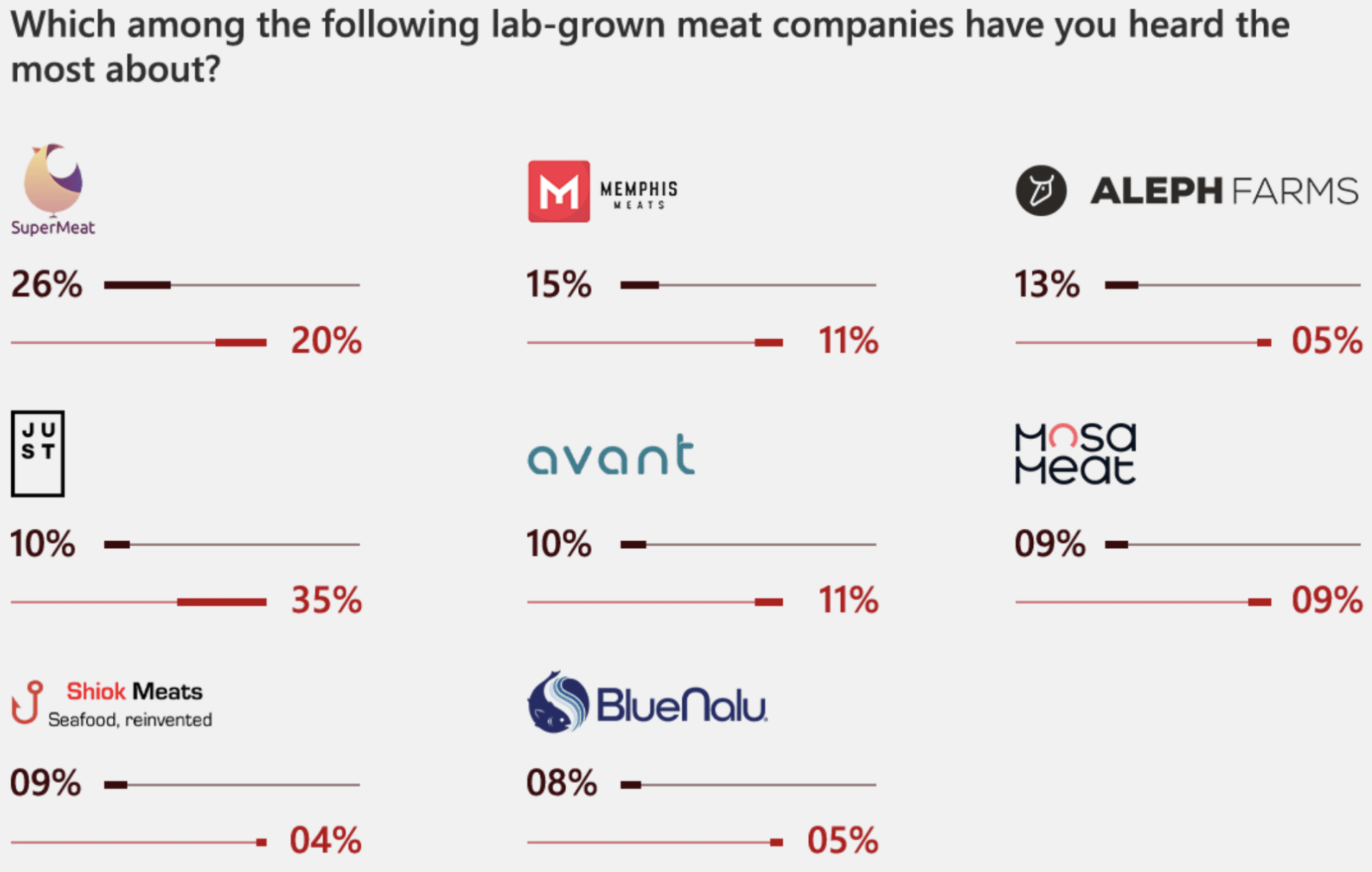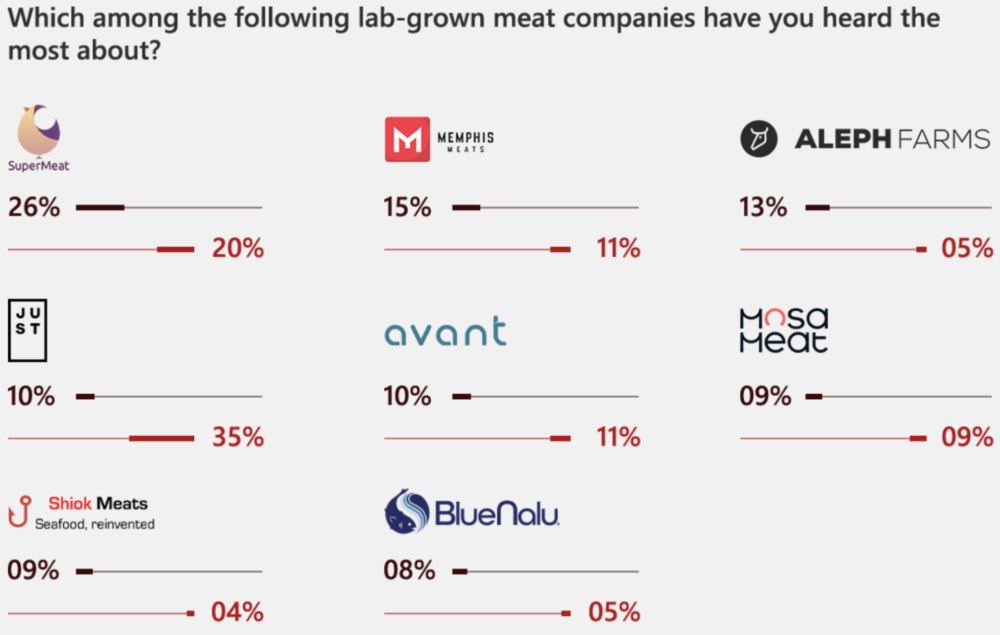A fifth of US and UK consumers are eager to try cell-cultured meat products, but over two-thirds would still prefer to eat “real meat” from slaughtered animals on a regular basis, according to a survey conducted earlier this month by market research platform Piplsay.
The survey sample included 31,340 Americans and 9,166 Britons, who were asked if they had heard of “lab-grown meat” (that’s Piplsay’s choice of terminology, not AFN‘s – see discussion point below.)
In total, 59% of Americans and 60% of Britons reported familiarity with the concept, with around a third of each group saying they were “eager to try” cultivated meat:

On the whole, UK respondents tended to be attracted by the environmental and ethical plus points of cell-cultured protein, while their US counterparts were won over by the category’s purported health benefits:

Nevertheless, a large majority of both US and British consumers suggested that they’d stick to animal products over the longer term (again, the terminology used here is Piplsay’s, not AFN‘s – see discussion point below):

Piplsay also asked survey participants about their levels of recognition of several cell-cultured meat startups. Interestingly, the most-recognized brand overall was Israel’s SuperMeat, which produces chicken meat and serves it to diners at The Chicken – its Tel Aviv restaurant which it describes as “the world’s first test kitchen serving a menu of dishes developed from cultivated chicken grown directly from chicken cells, all under the same roof.”

Among UK consumers specifically, Eat Just was far and away the most recognized name in cell-cultured meat – which was somewhat curious, given it is a US-based company which doesn’t sell any products in the UK as yet.
According to Crunchbase, SuperMeat has raised a total of $4.2 million in venture funding since launching in 2015; while Eat Just has raised a total of $440 million since it was founded in 2011 (its cultivated meat division, Good Meat, has separately raised $170 million.) Eat Just was the first company in the world to secure regulatory clearance for a cell-cultured meat product when Good Meat chicken was approved for public sale in Singapore last year.
How reliable are Piplsay’s findings?
While it provides an interesting snapshot of US and UK consumers’ evolving preferences around alt-proteins, Piplsay’s survey does appear to have an issue with the language it uses to describe different types of protein products.
Piplsay refers to cell-cultured meat as “lab-grown meat” or “lab meat.” The use of both terms is now largely discouraged by both the cellular ag industry and by food sustainability campaigners, who argue that it comes with negative connotations and fails to accurately portray how such products are actually made.
Likewise, Piplsay uses the phrase “real meat” to describe meat from slaughtered animals (despite cell-cultured meat being essentially the same end product.) It separately asks respondents about “fake meat,” without explaining precisely what this term is supposed to refer to (by a process of deduction, one can conclude that this is meant to be plant-based meat analogs.)
It can therefore be argued that “lab meat,” “real meat,” and “fake meat” are loaded terms, the use of which could unduly influence the responses received.
Piplsay says it survey reflects the “independent opinions of respondents and [is] not sponsored by any organization or individual.”




